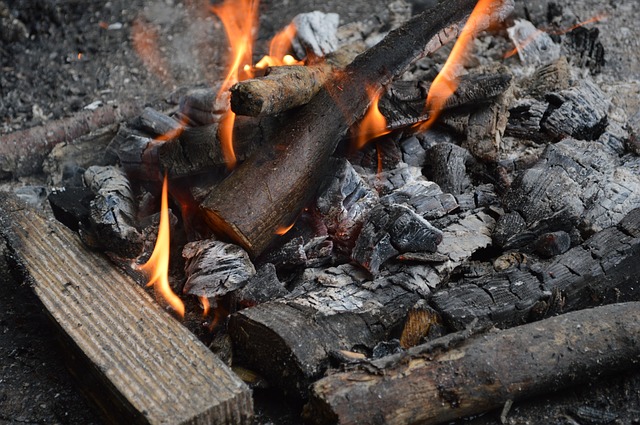Charred wood, otherwise known as charcoal, is the perfect natural solution for a myriad of issues that arise on the homestead. Yes, grilling is more flavorful when done over a properly maintained charcoal grill, but there are many other practical uses for charcoal. Whether made yourself or purchased elsewhere, a supply of charcoal ought to be kept on hand at all times.
Charcoal is made by quickly eliminating a wood fire’s supply of oxygen. This creates a very porous material which allows it to absorb toxins, impurities and other organic materials, which means these unwanted materials stick to the entire surface area of the charcoal. It is this property that renders it useful in so many homestead situations. To better expose and develop these pores, the charcoal is treated with argon and nitrogen after it has cooled, and then it is heated again. This activates, or opens the face of, the charcoal, creating a larger surface area, thus increasing its effectiveness.
Below are just a few of the many ways activated charcoal can be put to good use on the homestead.
(Note: The charcoal used for grilling is not safe to consume or for the uses listed here. Grilling or “barbecue” charcoal is processed differently.)
1. Medicinal uses
Those of us who prefer natural remedies turn to charcoal for its ability to adsorb toxins, especially when dealing with serious food poisoning episodes or simple insect bites or stings. Available in capsule form, charcoal taken internally will soak up toxins, bringing relief to the victim. For bites, stings and other skin rashes, poultice or thick paste of activated carbon and purified water will draw the poison out of the skin and eliminate the burning or itching that often accompanies it. It also can be used as a digestive aid, as it will reduce bloating by trapping excessive gas and removing it from the digestive tract.
Story continues below video
2. Cleansing agent
Ever feel like there are some things that you can never get clean? Activated charcoal can be added to handcrafted soaps for additional cleaning power. A note of caution, however: Cleaners containing charcoal may stain light-colored surfaces, such as white porcelain sinks.
Discover More Than 1,100 Homesteading Tips And Tricks!
The soap may not be the most appealing to the eye, but it will trap dirt and excess oil, leaving everything feeling cleaner. Even your teeth will benefit from exposure to charcoal. Brushing with a tooth-powder containing active carbon will reduce the yellow and brown staining commonly found on some teeth, as well as pulling impurities out of the enamel overall, creating healthier teeth.
Activated charcoal is more useful for cleaning than just being an additional ingredient in plain soap, though. Most water filters contain some form of charcoal, and a good water filter is necessary for any water system.
3. Compost amendment
Adding charcoal to your compost pile benefits your vegetable and flower gardens by allowing you to create your own homegrown time-release fertilizer. The charcoal releases nutrients adsorbed from the compost pile into the garden as it breaks down in the soil over time. It has been shown that this method of mixing charcoal into the compost pile or barrel before incorporating the compost into the garden elevates the pH levels and increases the number of beneficial microbes found in the soil. However, avoid putting charcoal directly into the garden.
4. Feed additive
Digestive issues suffered by your livestock can be gently treated with doses of activated charcoal. For some, charcoal is now a regular addition to all livestock feed as a part of preventive care. Adding powdered charcoal to the feed has been shown to increase productivity of milk for cows and goats, increase laying for poultry and even reduce the fly population in key livestock areas.
This article is for informational purposes only and is not intended to diagnose or cure any particular health condition. Please consult with a qualified health professional first.
Do you know of other uses for charcoal? Share your tips in the section below:
 Off The Grid News Better Ideas For Off The Grid Living
Off The Grid News Better Ideas For Off The Grid Living




